Recent testing of structures and land reveals hidden dangers to property owners, months after California wildfires are extinguished
Recent testing of structures and land reveals hidden dangers to property owners, months after wildfires are extinguished. Southern California residents may still be exposed to dangerous toxins by living and working in buildings contaminated with a hidden intruder.
The 2007 California wildfires caused billions of dollars in damage and thousands of families and business owners to rebuild their lives. For weeks while the fires scorched areas from South Lake Tahoe to the Mexico border, California residents endured an atmosphere filled with smoke and watched as cars, lawns and window sills became home to annoying and potentially toxic ash and soot. Even those who did not live in the immediate burn areas felt the fury of the fires with dismal skies and ash-covered properties.
Reported Steve Slepcevic, chief executive and owner of Paramount Disaster Recovery, based in Palos Verdes: ‘What people may not be aware of are the dangerous levels of carcinogens, cyanide and other harmful toxins in the soot that settled in these structures. Just because you don’t smell smoke does not mean your home isn’t contaminated. Homes are not the only structures affected - schools, daycare centers, churches, hospitals - all buildings exposed to the wind-driven smoke and ash are at risk.’
Slepcevic and his team have examined several properties statewide that tested positive for dangerous levels of toxins hidden in places that many people never thought about until now.
Smoke is made up of particles, liquids and gaseous compounds that might not be visible to the naked eye. Wildfires produce tons of particulate matter per minute that seeps into structures - even with closed windows and doors. These toxic specks can be found settling in landscaping, running through rain gutters, buried in carpets and gathering on bookshelves. More shocking are the attics, siding panels, indoor and outdoor insulation, ventilation systems, heating and air-conditioning units, electronics, appliances, mattresses, pillows, couches and even clothing where harmful particulate matter is very commonly found.
‘Every time a contaminated television, heater or refrigerator is running or a bed is slept on particulate matter is re-entrained into the air that we breathe,’ stated Slepcevic.
“What people may not be aware of are the dangerous levels of carcinogens, cyanide and other harmful toxins in the soot that settled in these structures.
Steve Slepcevic, chief executive and owner of Paramount Disaster Recovery
Health hazards that are faced when exposed to particulate matter include aggravated asthma, respiratory symptoms, chronic bronchitis, decreased lung function – (especially in children), lung cancer and premature deaths. This potentially deadly airborne substance enters the body and makes its way into the lungs where it can do its worst damage. Particulate matter related deaths are reported to be comparable to those caused by traffic accidents.
Stated Dr. Anthony Mathieu, San Diego resident and wildfire victim: ‘We didn’t know where to start - we trusted our insurance company who recommended several insurance preferred contractors that all made very poor recommendations. I was completely disappointed and began my through research of a consumer based general contractor specializing in smoke contamination cleaning, when I hired Paramount Disaster Recovery.’
‘We are making progress, thanks for Paramount’s expertise and I now know my home is contaminated based upon the test results from an independent industrial hygienists firm,’ continued Mathieu. Four months since containment of the San Diego wildfires, the Mathieu family continues battling insurance roadblocks, meanwhile spending out-of-pocket money to do what they can to make their home barely habitable.’
The Federal Emergency Management Agency (FEMA) has guidelines in place pertaining to proper clean-up procedures including pressure washing the outdoors, laundering items and completing a thorough cleaning of everything inside the building. Decontaminating an area that has been exposed to particulate matter may also include removing and replacing furniture, insulation, carpeting and filters. Additionally, the property needs to be professionally tended to by experts in demolition, waste removal and construction. Most important, it is imperative that the clean-up process takes place as soon as possible to avoid further contamination through winds, rain and other means of disturbing any particulate matter.
Concluded Slepcevic: ‘People need to understand that they are facing potentially serious health problems and environmentally unsafe conditions if these smoke damaged properties are not remedied promptly.’





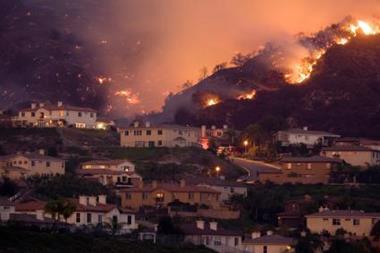
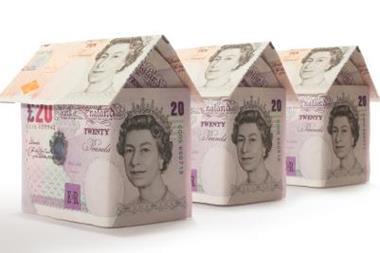
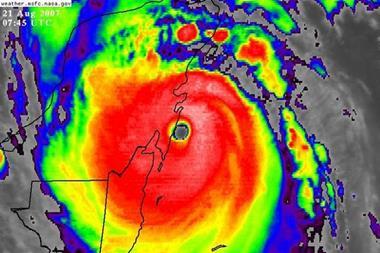
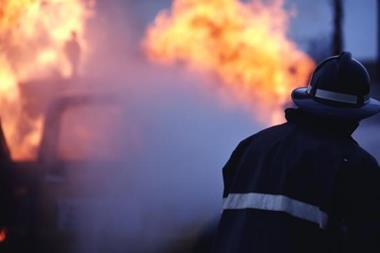
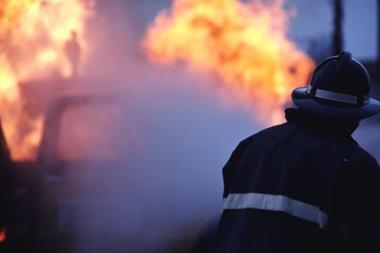









No comments yet